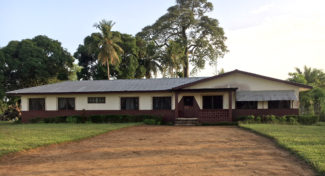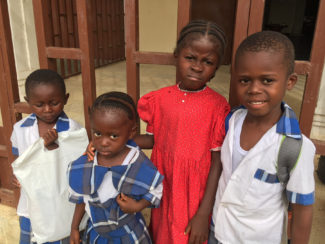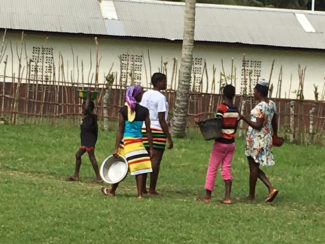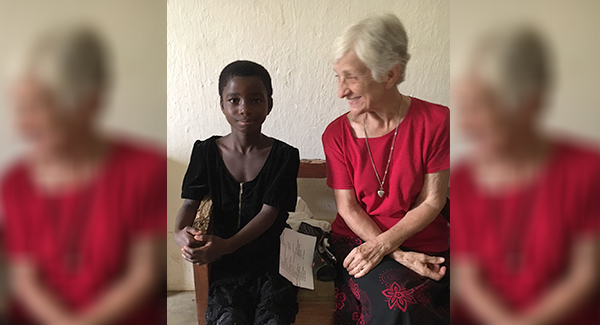Sister Therese Wetta arrived in Monrovia, the capital of Liberia, on April 25 to re-open the Adorers of the Blood of Christ (ASC) mission, which closed more than 25 years ago.
Wetta and Sister Zita Resch are living in the house that the ASC originally lived in during their time in the ’80s. After the ASC closed it in 1985, the building was used as a home for girls, and then it became a rectory for the priests.
She said the first thing she did upon arrival was pray and thank God they arrived safely. After driving on some treacherous roads, Wetta said it was nice to finally arrive.
“We unpacked and got settled,” said Wetta. “Then we met with the parish council to find out what their priorities were. We went without an identified ministry because we wanted to hear from them what they needed.”

This isn’t Resch’s first time in Liberia. Wetta said, “Sister Zita was there for seven years and left just before the war broke out. While she was there, she ran a sewing and baking program, and there is interest in renewing that program now. The boys have a football program, but the girls don’t really have anything.”
Wetta’s responsibilities include teaching religion for grades seven through nine, with approximately 28 students per class.
So far, Wetta said they haven’t had much time with the children since they arrived so late in the school year. But the little time they’ve had, she said, has been a great way to start getting to know the children, and for the children to become acclimated to their style of instruction.
“They aren’t really used to studying,” explained Wetta. “And now they have homework assignments because the grade is done on a 100-point basis, and they aren’t used to it.”

She said the school doesn’t have many books to work with, so much of the education is done by rote memory. Making paper copies of lessons is also a challenge. There are only three copy machines in the area, and two are usually out of paper or ink. The third is at the local hospital. Wetta said she is able to use paper copies occasionally but many times just writes the lessons on the classroom board.
Challenges within the education system also stem from some very hard times in the community.
“There’s a lot of ‘post-war syndrome’ still present. While on the outside they are calm, on the inside they are anxious and nervous and there is a lot of talking during class, not listening to the lessons I’m giving. I’m trying to find a way to begin the new year to resolve this early on, thinking about setting rules together with the classroom and emphasizing the idea of respect for people, and just listening in general.”
Wetta said the importance of getting an education was lost during the war, which took place for 14 years. The First Liberian Civil War happened 1989 to 1997, and the second was from 1999 to 2003.
“Part of the difficulty is that the people who are parents now were children during the war. There was no school and no stability. If you had a home, you had to flee to the forest when the soldiers came around. They didn’t get an education, yet they had to grow up and live their lives, and now their children aren’t getting an education. There is a lack of respect for education because the parents don’t think it’s important. So it’s going to take an attitudinal change, which I think will come, but slowly.”
Wetta said there are students in the class who want to learn, so she is working on getting other children to respect that, too.
Classes resume Sept. 4 and Wetta said she’s hoping to gain even more insight on what the children want to learn, and how they will learn best.

“I also help teach phonics, and I’m hoping to see the kids interact with their education more outside of the classroom with clubs and programs. I’m not sure what will work with the different age — it’s all going to be trial and error. They won’t know if they’re interested unless they come, but I will listen to them to find out what they would like to happen.”
Wetta said there is still much to be done in the education system. She said her focus will be on realizing positive change within the children, families and the community as a whole.
“The biggest adjustment I’ve had to make, I think, is adjusting to the people, to the language and trying to establish relationships. If we’re going to change the school to be stronger, we will need to collaborate with both the parents and the town.”

